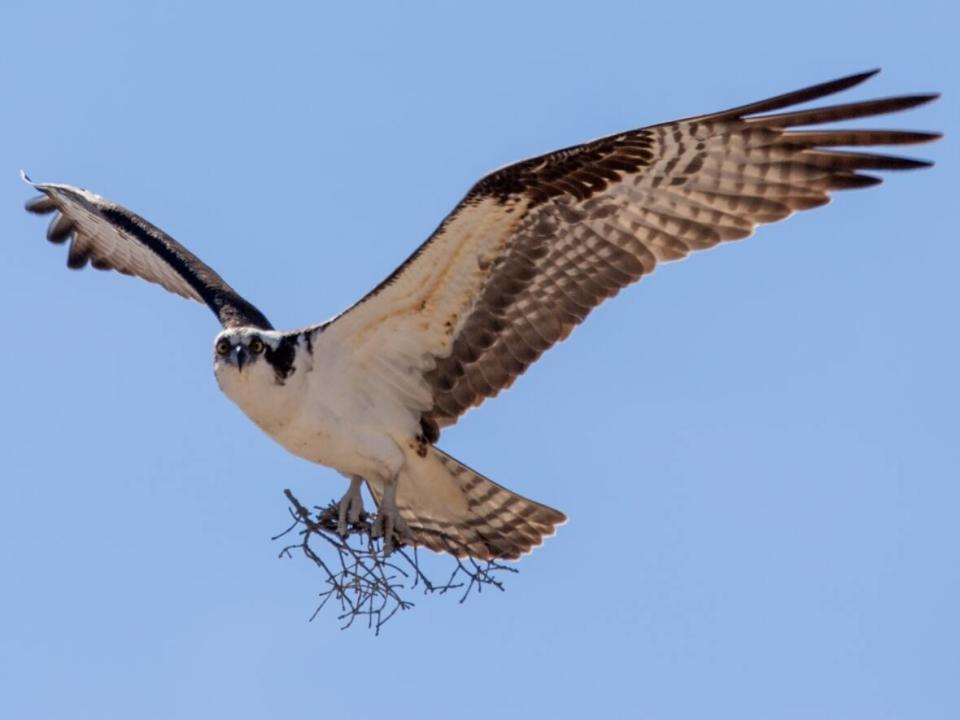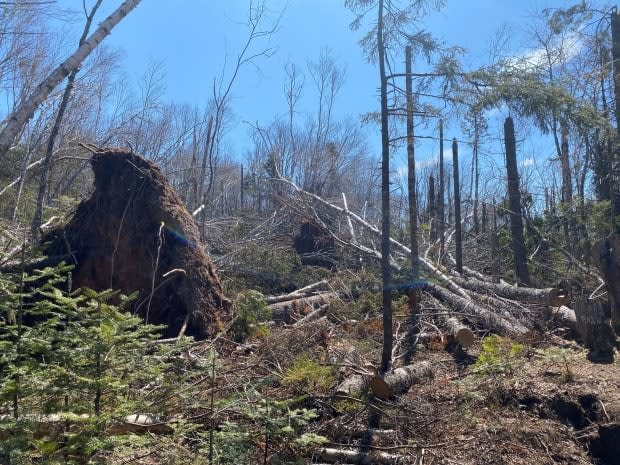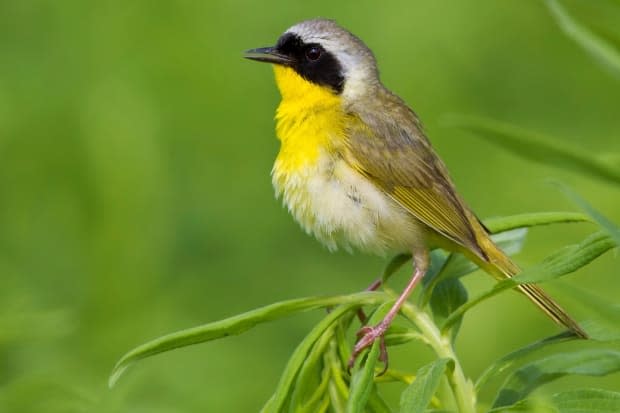
Gary Schneider, supervisor of the Macphail Woods Ecological Forestry Project, said birds he has banded often come back to the same place year after year. But this spring, they will find that post-tropical storm Fiona knocked down whole stands of trees across the Island.
“They’re going to come back and there’s going to be no forest for them in some places, so they’re going to have to find other places,” said Schneider.
“They really have to scramble to find territory, and it may already be inhabited by other birds.”

The forest has been through a huge disruption, and Islanders should avoid adding to the toll, he said.
The window for cleaning up in the forest this spring is closing with migratory birds arriving and looking to build nests. Removing partially downed trees or even brush from the forest from mid-May to early August runs the risk of destroying nests.

“There’s lots of time afterwards. We have beautiful falls here to work. That’s what I would recommend.”
Some birds will thrive
The loss of trees is not all bad news, said Bob Bancroft, president of Nature Nova Scotia.
There is no waste in nature and trees downed by Fiona will be put to good use, he said.

“The bugs will break it down, the fungi will thrive, and the new trees that grow will have a better soil base. So I’m not losing too much sleep over this.”
Some birds will do better in the new environment, he said.
“If you’re a common yellowthroat, you like a brush pile,” said Bancroft.
“A lot of birds that come early, before the leaves come out, actually use vegetation like brush piles to hide in and to forage, so really it’s a mixed bag.”
On the other hand, birds that like to nest in the high canopy — such as birds of prey like osprey and eagles — will be at a disadvantage this year, he said.
*****
Credit belongs to : ca.news.yahoo.com
 Atin Ito First Filipino Community Newspaper in Ontario
Atin Ito First Filipino Community Newspaper in Ontario






